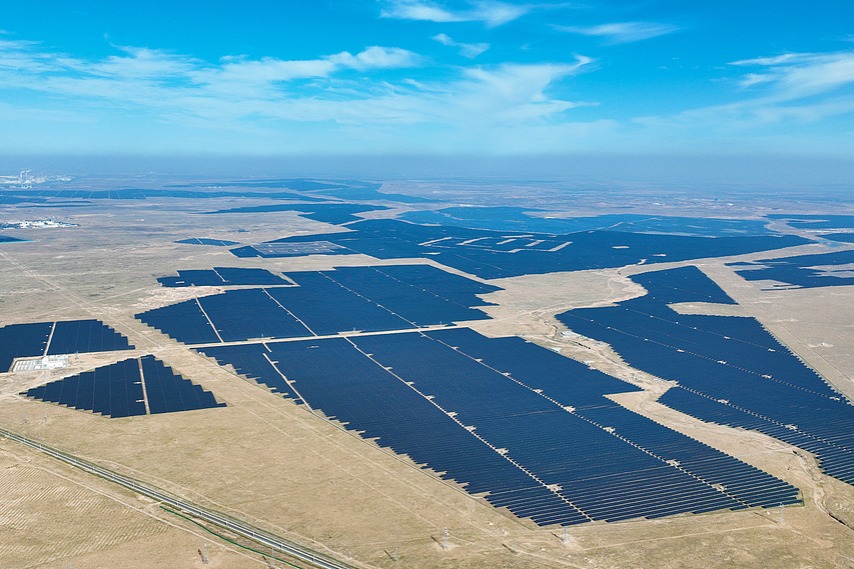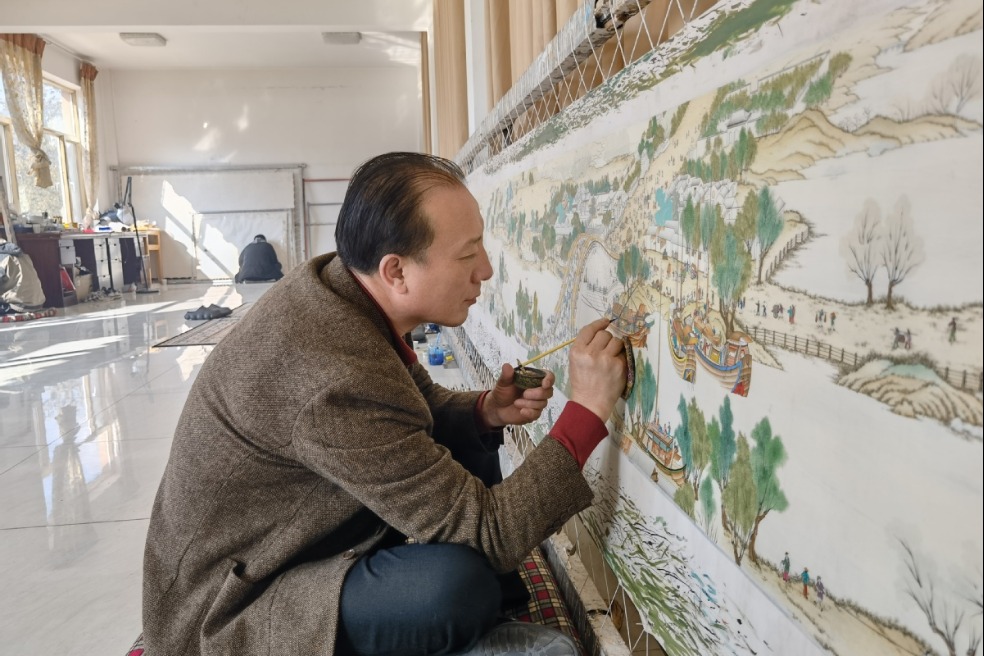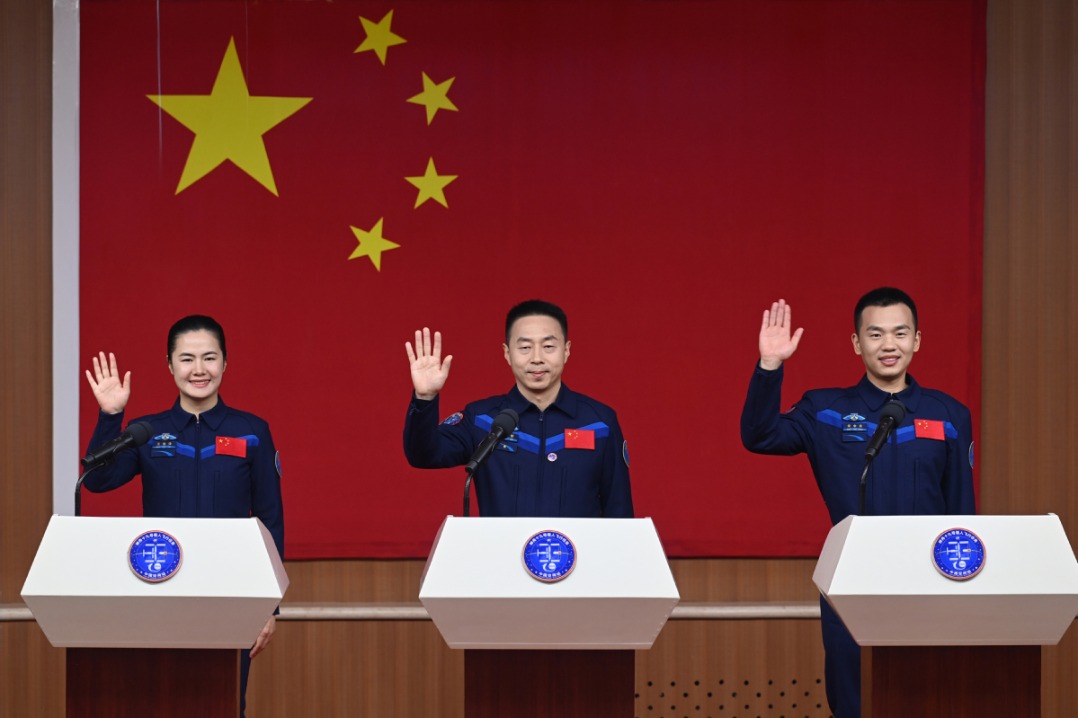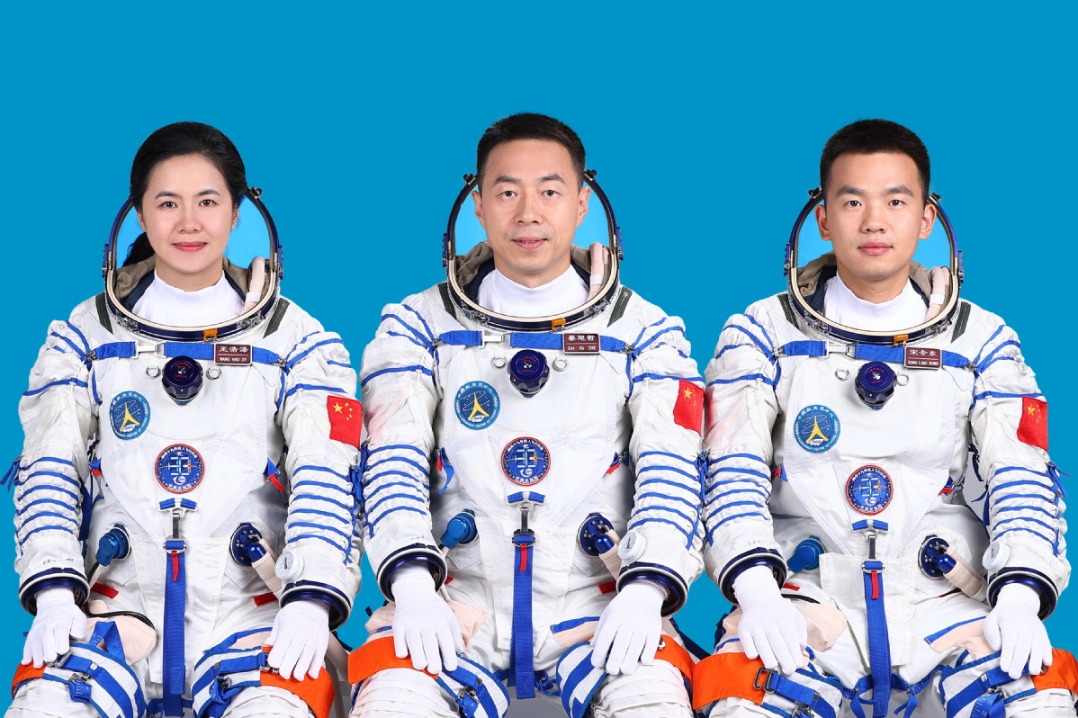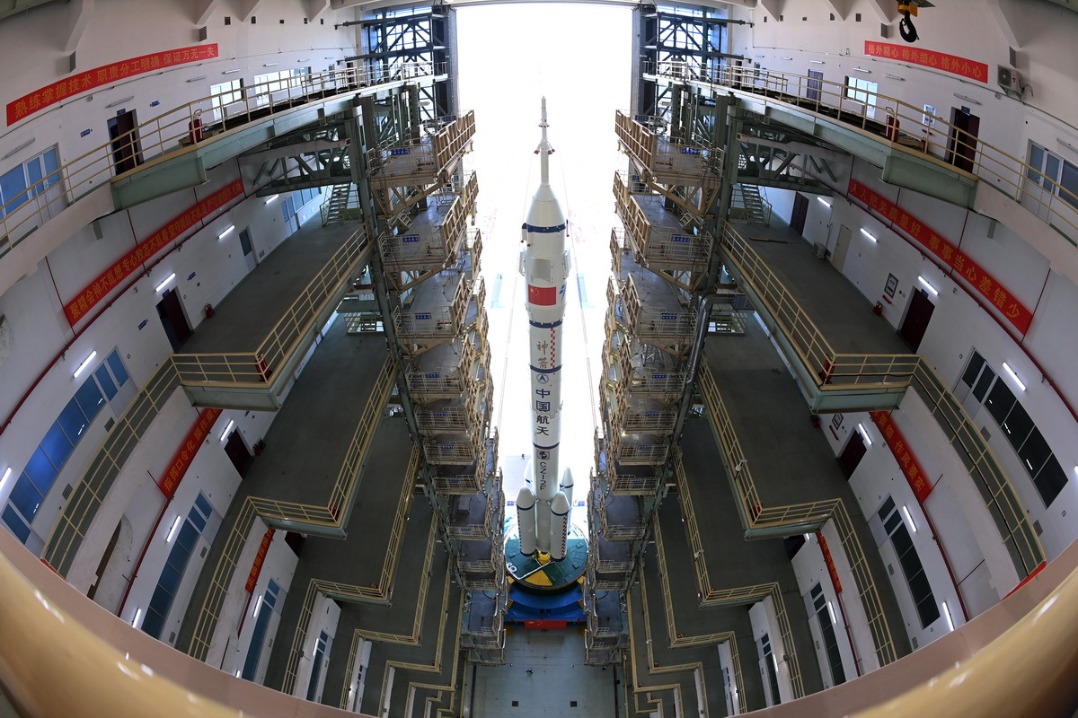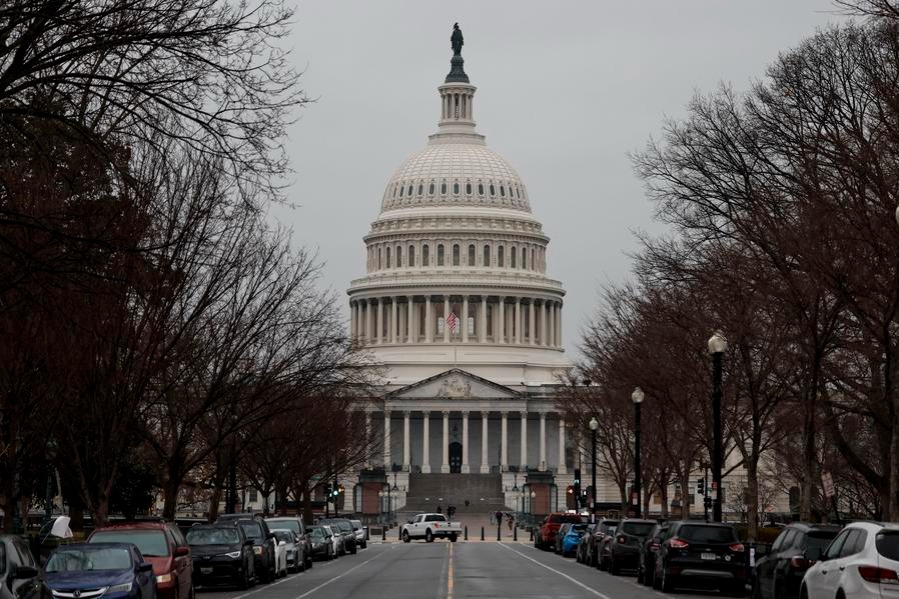China's International Development Cooperation in the New Era

1. Cultural and Philosophical Origins
China has a cultural foundation and national character that attach great importance to good faith, friendship, justice and righteousness. This is an inherent force driving China's development cooperation, which is based on the following notions:
-The Chinese nation's ideal of universal harmony. China pursues an ideal world where the Great Way rules for the common good, respects the principles of good neighborliness and harmony in relations with all other countries, and advocates cooperation and mutual help. Deep rooted in Chinese culture, these are the firm beliefs that inspire China's development cooperation. Upholding the belief that all countries are members of a global village with shared future, China advocates fairer and more equitable international relations, and steadfastly contributes to global development.
-The Chinese idea of repaying kindness with kindness. The Chinese people will always remember the support and help that China has received from other countries and international organizations. Chinese culture admires those who return the favor of a drop of water in need with a spring of water indeed. China is willing to share its successful experience without reservation to boost development in other places and benefit more countries and peoples.
-The Chinese tradition of internationalism. The Chinese people always preserve a sense of justice and a feeling of sympathy. In 1950, just one year after the founding of the People's Republic, China did its utmost to support other countries in their campaigns for national independence in spite of its own difficulties. Over the past seven decades, the Chinese nation has forged ahead, moving from poverty and backwardness towards strength and prosperity. The Chinese people hope that other peoples will also lead a good life while theirs is improving, and are willing to contribute as much as they can to other developing countries' efforts to satisfy their people's aspiration for a better life.
-China's sense of responsibility as a major country. China is a founding member of the United Nations and also a permanent member of the UN Security Council. It upholds the universal values of humanity-peace, development, equity, justice, democracy and freedom-and sticks to a development path that is peaceful, open, cooperative and inclusive. China considers it a duty to actively engage in development cooperation as a responsible member of the international community. China considers it a mission to contribute more to humanity. Its wish is to offer more public goods to the international community and join forces with other countries to build a better common future.
2. China's Approaches to Development Cooperation
Based on its experience in international development cooperation since the 18th CPC National Congress, China has formed distinctive approaches in keeping with the new era while maintaining its fine traditions, as elaborated below.
-Promoting a global community of shared future is the mission of China's international development cooperation. Humanity shares a common stake in development, and world stability and prosperity cannot be achieved unless developing countries can progress. By helping other developing countries reduce poverty and improve their people's lives, China works together with them to narrow the North-South gap, eliminate the deficit in development, establish a new model of international relations based on mutual respect, equity, justice and win-win cooperation, and build an open, inclusive, clean and beautiful world that enjoys lasting peace, universal security and common prosperity.
-Pursuing the greater good and shared interests, with higher priority given to the former, is the underlying guideline. This represents one of China's cultural traditions and embodies its belief in internationalism. Under this guideline, China strives to make the cake of prosperity bigger, and hopes developing countries will advance faster to share the opportunities and benefits offered by open development. Observing the principle of mutual benefit for win-win outcomes, it offers as much assistance as it can while taking into consideration of the interests and needs of other developing countries.
-South-South cooperation is the focus. In spite of China's tremendous achievements, two realities have not changed: China is in the primary stage of socialism and will remain so for a long time to come, and China is still the world's largest developing economy. China's development cooperation is a form of mutual assistance between developing countries. It falls into the category of South-South cooperation and therefore is essentially different from North-South cooperation. China is a staunch supporter, active participant and key contributor of South-South cooperation. It will continue to shoulder the international responsibilities commensurate with its development level and capacity, and further expand South-South cooperation, so as to promote joint efforts for common development.
-Belt and Road cooperation is a major platform. The Silk Road Economic Belt and the 21st Century Maritime Silk Road are significant public goods China offers to the whole world and a major platform for international development cooperation. China has joined hands with other countries to promote policy, infrastructure, trade, financial and people-to-people connectivity, to build the Belt and Road into a path towards peace, prosperity, opening up, innovation, green development, cultural exchanges, and clean government.
-Helping other developing countries to pursue the UN 2030 Agenda for Sustainable Development is a key goal. The 2030 Agenda is a guiding blueprint for development cooperation around the world and has a lot in common with the Belt and Road Initiative. The international community has made initial progress in achieving the agenda's goals in recent years, but global development remains unbalanced and inadequate. The Covid-19 pandemic has posed a serious threat to the 2030 Agenda, making it a tough task to achieve its goals in all countries and for all people as scheduled. Through international cooperation on improving development capacity and optimizing development partnerships, China has helped other developing countries mitigate the impact of the pandemic, so as to accelerate action for the 2030 Agenda and achieve common prosperity.
3. China's Principles for Development Cooperation
China's principles for international development cooperation are as follows:
-Respecting each other as equals. China always supports development cooperation on the basis of the Five Principles of Peaceful Coexistence. It holds that all countries, regardless of size, strength and wealth, are equal members of the international community. When cooperating with other countries for development, no country should interfere in their efforts to find a development path suited to their own national conditions, interfere in their internal affairs, impose its own will on them, attach political strings, or pursue political self-interest.
-Doing the best we can to help. Taking both the domestic and international situation into consideration, China gives full play to its comparative strengths, and perform international duties compatible with its national strength. Within the framework of South-South cooperation, it provides as much assistance to other developing countries as it can. China respects other developing countries' opinions, and determines cooperation projects through friendly consultation and mutual agreement. It does not launch projects in conflict with its partners' development level and needs. China is always true in word and resolute in deed. It honors its commitments and ensures all projects achieve good results.
-Focusing on development and improving people's lives. Development is the top priority of all countries. When carrying out development cooperation, China emphasizes coordination of plans and strategies with partner countries, and responds to the priority needs of developing countries for social and economic progress. Aiming to improve people's wellbeing and provide them with tangible gains, it increases investment in poverty alleviation, disaster relief, education, health care, agriculture, employment, environmental protection, and climate change response, and actively participates in emergency humanitarian relief operations.
-Providing the means for independent development. Fully considering the resources, development level and needs of other developing countries, China shares unreservedly its experience and technologies with them by various means, and trains local talent and technicians for them, so as to empower them to tap their own potential for diversified, independent and sustainable development.
-Conducting effective cooperation in diverse forms. China has developed distinctive forms of foreign assistance throughout its long-term experience, including:
? complete projects,
? goods and materials,
? technical cooperation,
? cooperation in human resources development,
? South-South Cooperation Assistance Fund (SSCAF),
? medical teams,
? outbound volunteers,
? emergency humanitarian aid, and
? debt relief.
In accordance with its partners' actual needs and conditions, China chooses the optimal forms of cooperation to maximize the results. It champions the efficient use of funds to their best value.
-Ensuring delivery and sustainability. China prioritizes implementation management, supervision and evaluation to ensure the quality of projects. In order to maintain the reputation and credibility of China-aid projects and increase their overall efficiency, China pays close attention to the operation of completed projects, provides follow-up technical support, and boosts the integration of investment, construction and operation. To ensure lasting impact, it promotes vocational training and technical cooperation, and helps countries to improve the skills of their project management personnel and localize project management. China seeks solutions through bilateral consultations with countries in difficulty for repayment of debts, and helps low-income countries to achieve debt sustainability.
-Being open and inclusive to promote exchanges and mutual learning. China furthers its international communication on development cooperation to dispel doubts, increase mutual trust, and seek mutual learning. It respects the wishes of countries in receipt of aid, and discusses and launches cooperation with other countries and international organizations based on the principle that projects should be proposed, agreed and led by recipient countries. In a spirit of openness, China explains through various channels its policies, funding and management for development cooperation to the rest of the world.
-Advancing with the times and breaking new ground. Following the trends of the times and the changes in the domestic and international situation, China introduces reforms and innovations to its development cooperation while remaining true to its own principles. Absorbing the experience of other countries and international organizations in this field, and based on the development goals and needs of developing countries, China makes institutional reforms, improves regulations, diversifies forms, and expands areas of interest to increase the quality and effectiveness of cooperation.

















